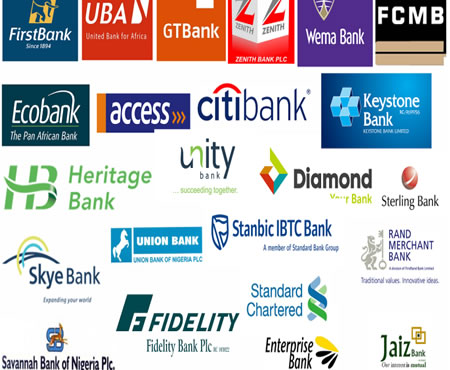

THE banking sector has been dynamic in recent weeks, with significant movements in capital raising efforts and market performance.
Analysts have been closely monitoring the recapitalization activities of various banks, including developments at Sterling Bank, Wema Bank, Unity Bank, and others. The week ending September 20, 2024, witnessed key announcements and trends in the capital markets, impacting the performance of the NGX-Banking Index and individual banks’ share prices.

Sterling Bank announced a new capital raise of N75 billion on September 18, 2024. This capital raise was achieved through a private placement from a consortium of domestic investors and ultra-high-net-worth groups based in Lagos.
The transaction is currently awaiting regulatory approval, which is said to be in its final stages. This development comes on the heels of analysts’ earlier predictions of a major capital raise by the bank, following a review of its financial health and capital adequacy ratios.
Sterling Bank’s recapitalization efforts are part of a broader strategy to improve its balance sheet and meet regulatory capital requirements. In recent months, the bank’s share price has faced significant downward pressure, with its year-to-date (YTD) return falling to -37.73 percent.
This steep decline highlights the bank’s urgent need to strengthen its capital base and restore investor confidence. The upcoming capital injection is expected to provide Sterling Bank with the necessary liquidity to support its operations and potentially reverse the negative trend in its stock performance.
The NGX-Banking Index, a key benchmark for the performance of the banking sector, rose by 1.26 percent week-on-week (W-o-W) to close at 911.43. The index tracks the stock performance of major banks listed on the Nigerian Exchange (NGX), and its recent growth reflects the resilience of the banking sector amid ongoing recapitalization activities.
At the end of the week, the year-to-date (YTD) returns for some Tier 1 banks showed positive momentum.
Guaranty Trust Holding Company (GTCO) recorded a YTD return of 17.28 percent, while First Bank of Nigeria Holdings (FBNH) and Ecobank Transnational Incorporated (ETI) posted YTD returns of 16.77 percent and 14.83 percent, respectively. These gains highlight the robust performance of these banks in the face of challenging macroeconomic conditions.
On the other hand, several Tier 1 banks experienced a decline in their YTD returns. Fidelity Bank, Wema Bank, and First City Monument Bank (FCMB) managed to buck this trend, with Fidelity and Wema leading the pack at 25.35 percent and 21.43 percent, respectively. These banks’ strong YTD performance is indicative of their successful recapitalization efforts and improved market perception.
While some banks recorded gains in their YTD returns, NGX records show that others faced declines.
Sterling Bank, as mentioned earlier, saw its YTD return plummet to -37.73 percent, while Stanbic IBTC Bank’s YTD return fell to -18.16 percent. The downward trend in these banks’ share prices reflects market concerns about their capital adequacy and overall financial health. Stanbic and Sterling, both categorized as Tier 2 banks, have faced increased scrutiny from investors and regulators, prompting the need for recapitalization measures.
In the penultimate week ending September 13, 2024, Proshare’s Bank Recapitalization Watch covered activities at Wema Bank Plc. The bank held its first half-year 2024 conference call on September 1, 2024, during which it outlined its plans to raise N150 billion in new capital. This capital raise will be achieved through a combination of hybrid rights issuance, public offers, and private placements. The recapitalization exercise is still in progress, with the start and closing dates yet to be announced. As of now, the initial capital raise stands at N200 billion, providing Wema Bank with a solid foundation for future growth.
Wema Bank’s recapitalization is aimed at strengthening its capital base and positioning the bank for sustainable growth. The bank has been proactive in its efforts to raise capital, and the ongoing exercise is expected to provide it with the necessary funds to expand its operations and improve its competitiveness in the Nigerian banking sector.
Another significant development in the banking sector is the ongoing merger between Unity Bank and Providus Bank. According to the Proshare Economy and Market Intelligence (EMI) unit, the merger process has reached a stage where the initial merger template is being adjusted. One of the parties involved in the merger has identified an opportunity to raise additional capital, which has altered the original dynamics of the transaction.
The Unity Bank and Providus Bank merger is expected to create a stronger entity with a more robust capital base. The merger will enable both banks to leverage each other’s strengths and expand their market share in the Nigerian banking industry. The recapitalization efforts tied to the merger will provide the combined entity with the liquidity needed to support its operations and pursue new growth opportunities.
Ecobank Nigeria is also in the process of raising new capital. The bank is awaiting an official announcement from its parent company, Ecobank Transnational Incorporated (ETI), regarding the exact amount to be raised. A formal declaration is expected soon, and the market is closely watching for further details on Ecobank Nigeria’s recapitalization plans.
Ecobank Nigeria’s capital raise is part of a broader strategy by ETI to strengthen its subsidiaries across Africa. The additional capital will enhance Ecobank Nigeria’s ability to compete in the Nigerian banking sector and support its expansion plans in the region.
Reports suggest that United Bank for Africa (UBA) and Sterling Bank have been active in the capital markets, and their upcoming announcements are anticipated to provide further insights into their strategies for raising new capital.
UBA, in particular, has been performing well in recent months, and its recapitalization plans are likely to focus on supporting its regional expansion efforts. Sterling Bank, on the other hand, is expected to use its recapitalization efforts to shore up its balance sheet and reverse its declining stock performance.
The recapitalisation activities in Nigeria’s banking sector continue to shape the performance of individual banks and the overall market.
As banks seek to raise new capital, investors are closely monitoring their progress and the impact on share prices. The NGX-Banking Index’s recent rise reflects the positive sentiment surrounding some of these recapitalization efforts while declining YTD returns for certain banks highlight the challenges they face in strengthening their capital base. The coming weeks will be critical for banks like Sterling, Wema, and Ecobank Nigeria as they finalise their capital-raising initiatives and position themselves for future growth.
READ ALSO: Borno flood: Maiduguri faces growing health crisis








